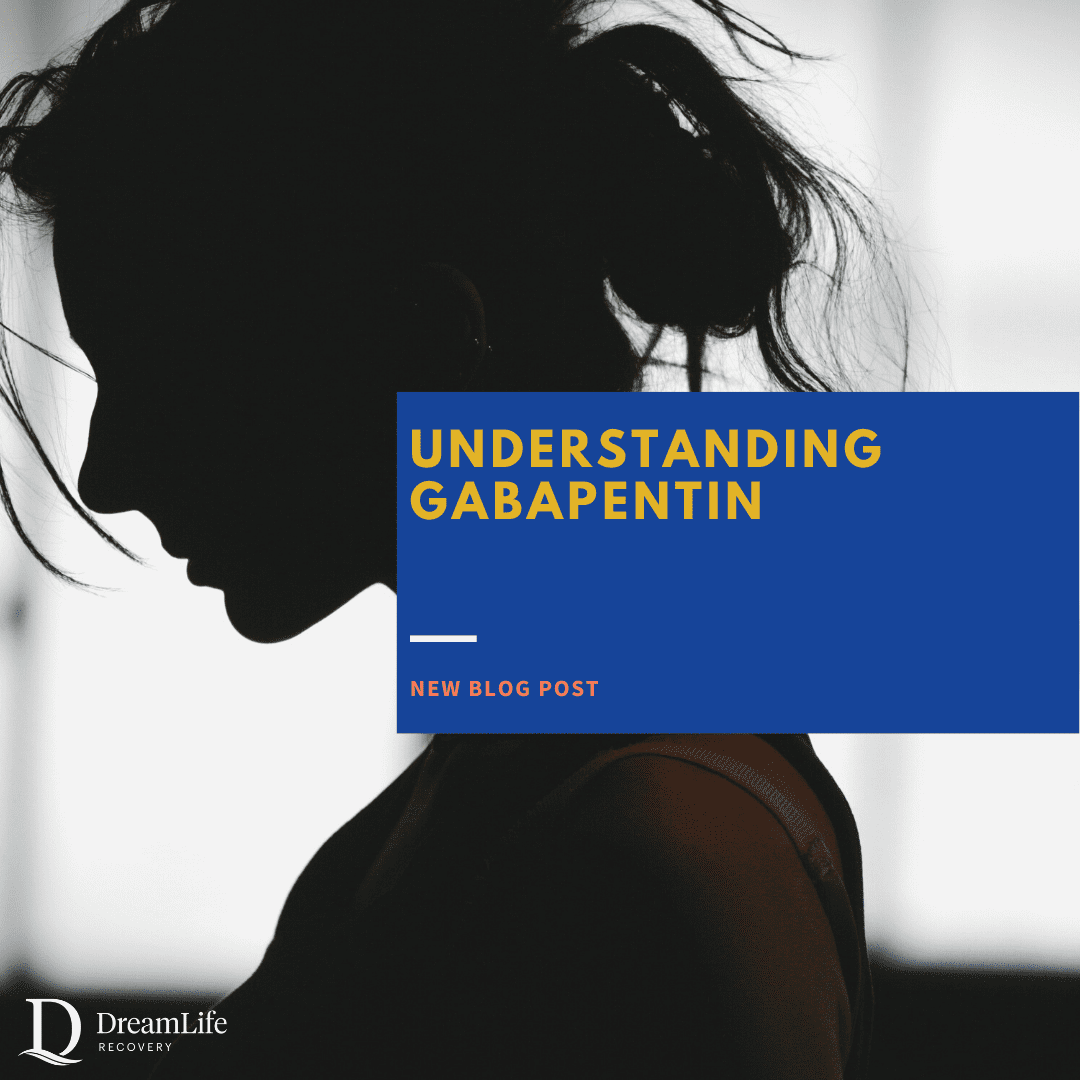Understanding Gabapentin

Written By
DreamLife RecoveryAccording to GoodRx, in May 2017, Gabapentin was the fifth-most prescribed drug in the nation. As of August 2020, Gabapentin made the same list at number six. This isn’t to say that lots of people are suffering from epilepsy, but instead, lots of people have nerve pain. The Centers for Disease Control and Prevention have touted it as a non-addictive alternative for opiates when treating chronic pain.
However, the availability of Gabapentin has created a problem with people starting to abuse the drug, popular amongst those who also abuse opiates.
What is Gabapentin?
Gabapentin is an anticonvulsant or antiepileptic drug that is used in conjunction with other medications to control and prevent seizures. It is typically available as the brand name Neurontin and as a generic version. While mostly used to treat epilepsy in adults and children three years and older, Gabapentin can be used to treat other conditions.
It can also be used to treat the burning and/or stabbing aches and nerve pains that follow shingles. In these scenarios, your doctor will likely start you on a low dosage that they will gradually increase depending on your condition. An extended-release version in tablet form can be used to treat restless legs syndrome where there is extreme discomfort in the legs, causing you to move your legs to find relief.
What are the Most Commonly Abused Prescription Drugs?
Find Out MoreGabapentin can come in capsules, tablets, extended-release tablets, and a liquid oral solution and is taken orally with or without food. Doses should be taken throughout the day with no more than 12 hours in between each dose.
Potential Gabapentin Side Effects
- Blurred or double vision
- Dizziness
- Drowsiness
- Eye movements that may seem unusual
- Fever
- Nausea
- Loss of coordination
- Restlessness
- Shaking
- Tremors
- Trouble sleeping
- Depression
- Mood swings
- Changes in behavior
Gabapentin side effects can range from mild to severe. If you experience severe symptoms such as shallow breathing, or serious allergic reactions, seek medical attention immediately as it could potentially be life threatening.
It’s important to be aware of any significant changes while taking this medication including drowsiness, depression, allergic reactions, or increased seizures. You should not stop taking Gabapentin suddenly, but instead, have your doctor wean you off of it slowly. This should not be a problem as it comes in different dosages such as 100 mg, 300 mg, and 500 mg.
If you have any kidney problems, Gabapentin can take longer to process through your body. Pregnant women, women who are breastfeeding, children under three years old, and seniors should all be very careful when taking this medication.
Mixing Gabapentin and Other Drugs
While effective on its own, Gabapentin can also be used in combination therapy, or with other prescription medications. Different medications will have different effects when interacting together. Before starting Gabapentin, tell your doctor any other medications you are taking in addition to over-the-counter drugs, vitamins, and supplements.
Other Gabapentin Warnings
Since each dose should not be taken more than 12 hours apart, if you miss a dose or don’t take it as scheduled, it might not be as effective. Ultimately, a certain amount needs to be in your system at all times for it to really work and provide results. However, you don’t want to take too much either. It is possible to overdose on Gabapentin and if this happens you will notice symptoms such as tiredness, double vision, loose stools, and slurred speech. Contact your doctor if you think you might have taken too much of this medication and if your symptoms are severe and worsening, seek emergency medical attention.
If you or a loved one are struggling with addiction and need help, the expert clinical team at DreamLife Recovery is here to help. We’re located just outside of Pittsburgh, Pennsylvania, and are ready to help you get on the reliable and proven path to recovery. Contact our admissions team if you’d like to know more about our prescription drug treatment program, facility, and get ready to get your dream life.
Resources:
- Gabapentin – MedLine Plus
- “Gabapentin, Oral Capsule” – University of Illinois; Healthline, 20 December, 2018
- “New on the streets: Gabapentin, a drug for nerve pain, and a new target of misuse” – Rodriguez, Carmen Heredia; Kaiser Health News, 6 July, 2017
- Gabapentin – Cunha, John P, DO, FACOEP; RxList
- Gabapentin (Oral Route) – Mayo Clinic, IBM Micromedex






